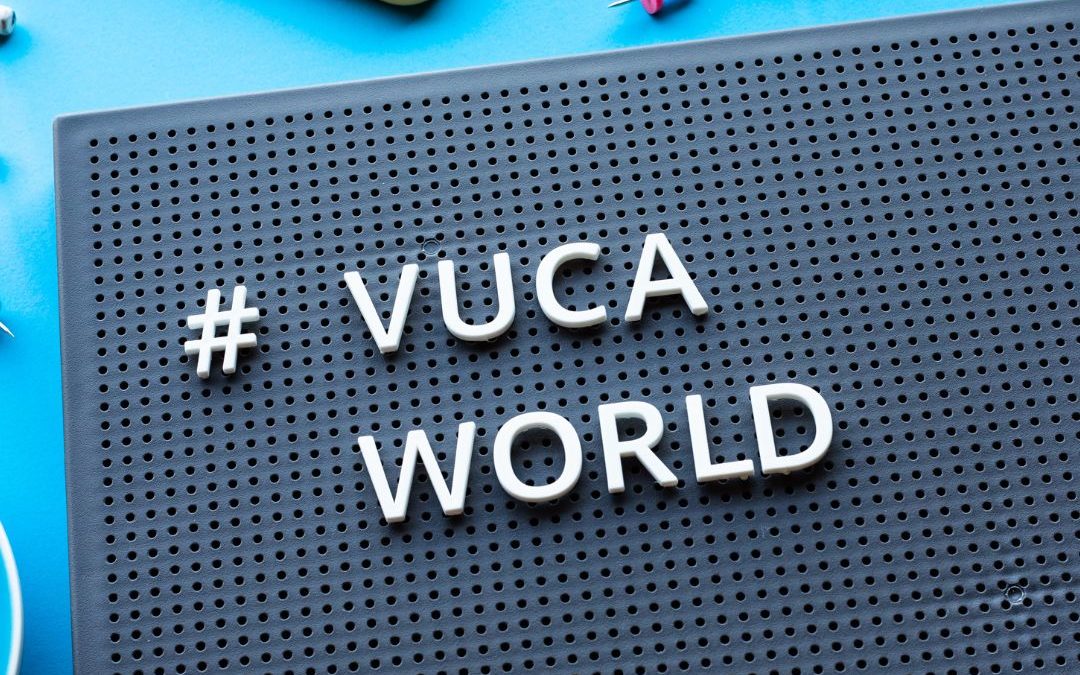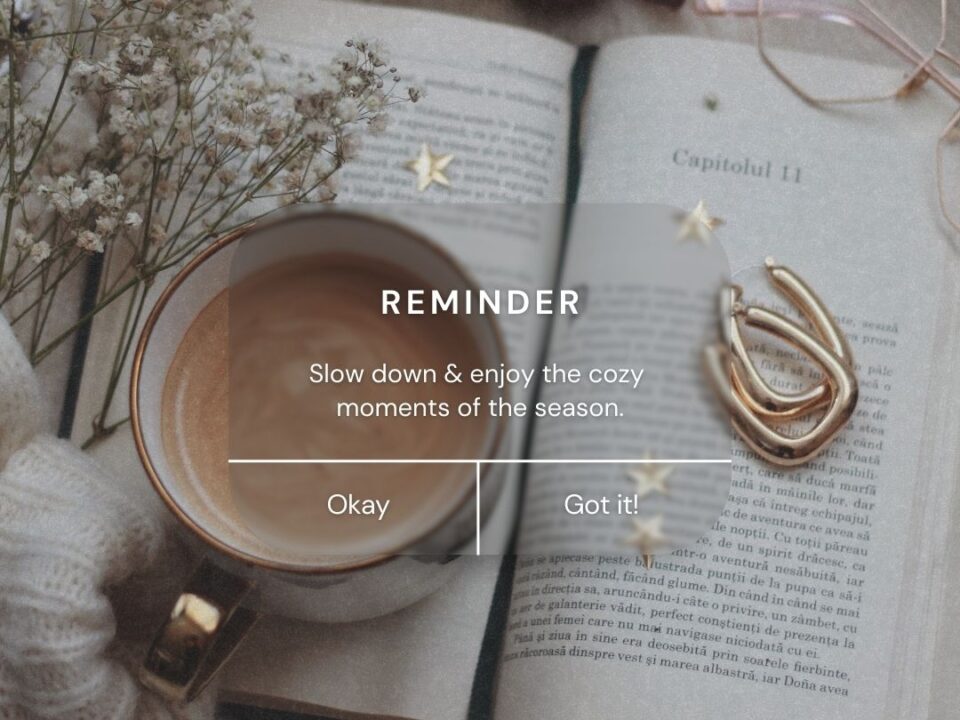
The phrase # VUCA World on a board
Written by Susan Merli
When we think about working in a VUCA world, it seems like so much volatility, uncertainty, complexity, and ambiguity will stop us in our tracks and prevent optimized decision making from ever truly happening. If the pandemic has taught us anything, it is that we have the resourcefulness, the capacity, and the critical thinking to plan, make rational decisions, to collaborate, and keep calm.
Our Brain Craves Certainty
We know that change is a constant, yet our brain craves certainty. We resist change. One of my favourite go-to books on change management is William Bridges’ book called Transitions: Making Sense of Life’s Changes.
Suggested Reading: Transitioning Through Change Like a Pro
Uncertainty Terrifies Us
At a physiological level, when we experience even the threat of what we cannot control our brain goes into “ready for being attacked” mode. To quote Canadian author, Marty Rubin,
“We’re all bewildered, but most bewildered of all are those who think they know the truth.”
Feeling uncertain terrifies us. It causes anxiety. As a psychotherapist, I understand that we cannot eliminate anxiety. We can use therapies and psychopharmaceuticals to reduce it significantly. Without any outside support or therapeutic interventions, our brain and body know well enough to try and keep safe and in so doing, it will automatically or sympathetically look for unconscious ways to reduce anxiety.
Feeling anxious about uncertainty affects our decision-making process. Individuals respond in different ways, but in many cases, we experience overthinking, ruminating, analysis paralysis, and an elusive quest to gain control.
If I could market a drug that would make you feel like you were in control, I’d be a billionaire. When we think we have control, we create a false sense of security. We take comfort in being blanketed by the delusion.
Suggested Reading: What You Think Might Not Be True
Everyone is Trying to Reduce Their Anxiety
We will never have enough information to make the perfect decision.
There is no escaping the risk of being wrong or missing out or worse, failing. We live and work in environments that do not celebrate or reflexively learn from failure. We often do not plan or build in time for trial and error.
Anxiety about uncertainty also introduces all types of potential cognitive biases. Common biases include confirmation bias, anchoring, association bias, and sunk cost bias.
Additionally, the fear of making the wrong decision creates even more anxiety. This fear can stop us from making any decision at all. We make excuses for why we cannot decide. We even blame it on VUCA.
Heightened levels of anxiety create stress in our body. Increased levels of cortisol create a hot bed of health risk factors. The presence of chronic stress sends the signal in our brain’s hypothalamus to leave the fight-or-flight light switch on as if we need to remain steadfastly on guard due to a worry about any imminent risk of threat.
Uncertainty Terrifies Us
We know at an intellectual level that decisions can be quite difficult to make at times. Uncertainty complicates the process.
- Certainty Comes After the Fact
- We only gain certainty after the outcome of the decision is made clear.
- So how do we deal with terrifying time before the outcome is known?
- How do we carry on, move forward, make decisions, and still try to reduce anxiety?
Techniques to Make Better Decisions
There are some specific ways to navigate through uncertainty and make better decisions.
- Accept that it is natural to fear uncertainty and learn to befriend it. This is hard to do, but with practice, you can make this a habit that eventually becomes more implicit.
- Consider that at some point, you will make a wrong decision. We all do. It is inevitable.
- When you feel stressed by indecision and uncertainty, make a conscious effort to step back and challenge your thinking. Are you applying critical thinking techniques? Are you using probabilistic thinking?
“Poker players and entrepreneurs both embrace the probabilistic nature of decisions. When you make a decision, you’ve defined the set of possible outcomes, but you can’t guarantee that you’ll get a particular outcome.” – Annie Duke.
Non-Binary Thinking
- Apply Probabilistic Thinking. It is a non-binary way of facing a problem. It helps us to step back and consider the odds and likelihood of various outcomes. Other techniques common to probabilistic thinking are the risk matrix and second order thinking (ModelThinkers, n.d). Probabilisitic thinking is a mental model that Poker champions use.
- Consider Forecasting. Forecasting is another mental model that buffers our thinking from being overly optimistic or overconfident. Research what has happened in the past and then work through probabilistic outcomes based on those cases.
- Zoom In and Zoom Out. Try to create a vision of the future where you zoom out and assess what can be controlled, influenced, or accepted, not from in the weeds, but from the balcony. You will give yourself a different perspective on the problem.
- Protect Yourself Against Cognitive Biases. Psychology students learn the scientific method as well as the difference between correlation and causation or “causal fallacy”. Just because the data points to more people drowning in pools when Nicholas Cage movies are released simply doesn’t mean it is true. We need to interrupt scenarios where we falsely find meaning in chance. Don’t attribute causal relationships to correlated factors (ModelThinkers, n.d.).Please check out fs.blog.com and this post on core mental models. It is a rabbit hole worth going down.For more on unconscious bias, please try the Implicit Bias Test.
Suggested reading: ModelThinkers
At the end of the day, self leadership in a VUCA world requires a level of faith in yourself. You find the courage to dig deep and act especially when you feel the fear that uncertainty triggers.
One of the best ways to navigate through VUCA successfully is to pause, zoom out and take a flexible holistic view of what is happening while remaining mindful of cognitive biases.
The C.I.A. Model
Finally, try the C.I.A. Model – deconstruct a problem into three segments and ask yourself
- What can I control?
- What can I influence?
- What can I accept?
We can’t escape uncertainty, but we can accept it, and learn to get more comfortable making decisions that need to be made without rumination and regret.
Sources
Bridges, W. (1980). Transitions: making sense of life’s changes.
Johansen, R. (2009). Leaders make the future: Ten new leadership skills for an uncertain world. San Francisco: Berrett-Koehler Publishers.
Mayo Foundation for Medical Education and Research. (2021, July 8). Chronic stress puts your health at risk. Mayo Clinic. https://www.mayoclinic.org/healthy-lifestyle/stress-management/in-depth/stress/art-20046037
Scotch. (n.d.). Probabilistic thinking. ModelThinkers. https://modelthinkers.com/mental-model/probabilistic-thinking



